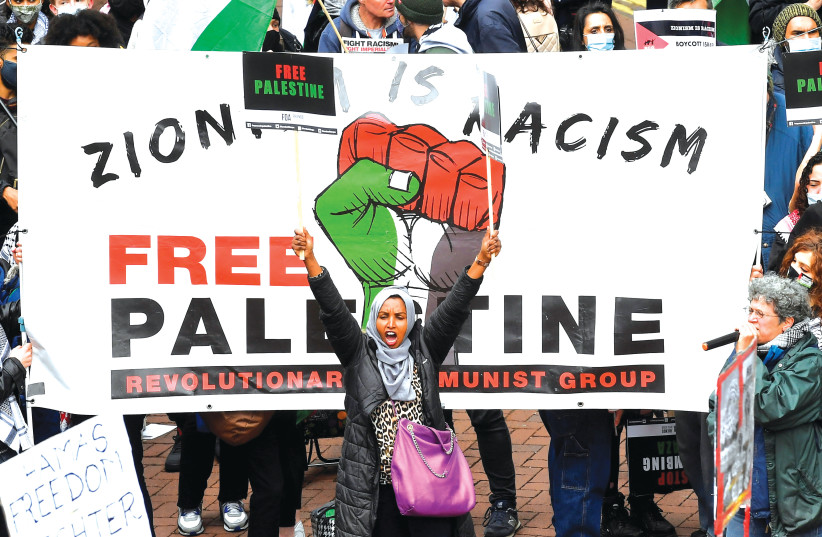We are pleased to bring to you this special issue of the Magazine, focused on the burning question of the day: Is anti-Zionism the new antisemitism – and how to address it?
While given October 7, the answer may seem obvious to many – yes, of course, anti-Zionism and antisemitism are one and the same, with anti-Zionism being the wolf in sheep’s clothing – the topic remains ever more complex.
The Magazine therefore asked a number of experts from around the world to offer their perspectives, tackling the issue from various angles.
Examining the link between anti-Zionism and antisemitism
Ambassador Nikki Haley brings her experience at the UN, a breeding ground of anti-Zionism, and offers bold solutions to address antisemitism masked as anti-Zionism on college campuses and elsewhere.
Felix Klein, the German government’s commissioner for the fight against antisemitism, shares his insight into the battle against anti-Zionism from Germany’s front lines, clarifying that “antisemitism is antisemitism” – whether it is Israel-related or otherwise.

Col. Richard Kemp, former commander of British forces in Afghanistan, shows how Hamas successfully mobilized global Jew-hatred, using Israel both as its target and its primary weapon and taking advantage of the “post-truth world.”
Gol Kalev, author of Judaism 3.0 – Judaism’s Transformation to Zionism, argues that anti-Zionism is not only an existential threat to Judaism but also a threat to global stability; therefore, it must be treated by the Biden administration as a matter of national security.
Gina Ross, head of the Los Angeles-based International Trauma Center, places anti-Zionism in the context of collective trauma – linking the October 7 events to the invocation of the trauma of the Holocaust embedded in the Jewish people, and arguing that a new strength emerges when the collective body and soul are united.
Barak Sella, an expert in Israel-US relations currently studying at the Harvard Kennedy School, brings in an insider look into campus antisemitism, sharing the loneliness of social isolation as an Israel supporter, and observing how young students around him are being “practically brainwashed.”
Aaron Poris frames the issue by recounting highlights from a symposium held right before the current war about the imminent danger the anti-Zionism ideology poses, and how to address it. Who would have thought that this would become so relevant so soon?
Yael Rozenman-Isamel, a single mother of Palestinian Muslim and Jewish heritage, writes a letter to her two-month-old daughter, born in Israel during the war and now raised in Bolivia, explaining the perils of anti-Zionism that she was born into and will have to face.
This Magazine follows the special issue we published a year ago about Zionism morphing into the anchor of Judaism, in which various thinkers, including President Isaac Herzog, expressed their views on the Judaism 3.0 thesis that Judaism is transforming and Zionism is becoming its most relevant aspect. That followed other special issue Magazines we have done on cutting-edge topics, from the future of Europe to the legacy of Theodor Herzl.
We hope this Magazine triggers a broader conversation about the subject at hand.
Ever your proud Zionist and editor, Erica Schachne
